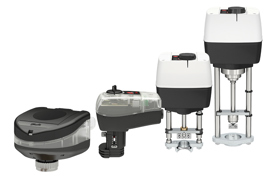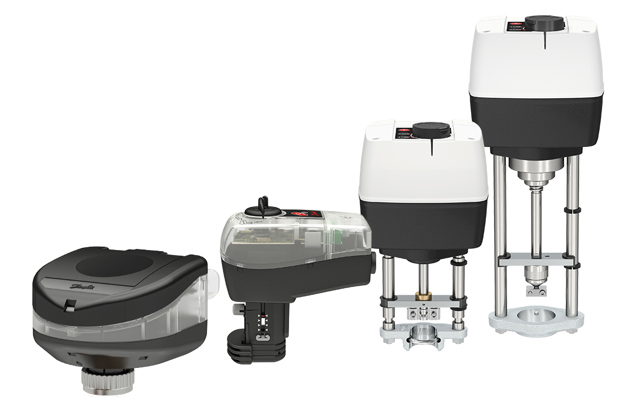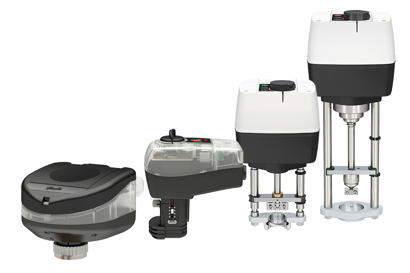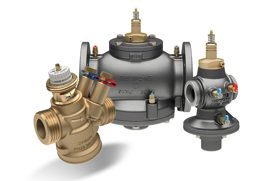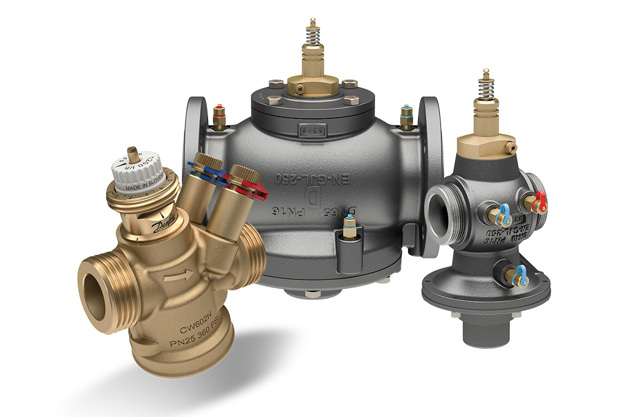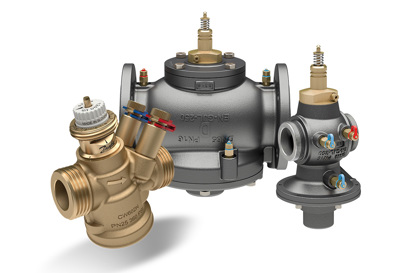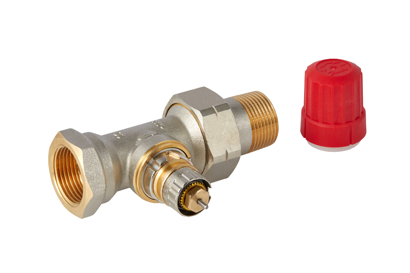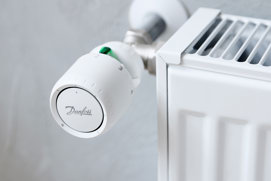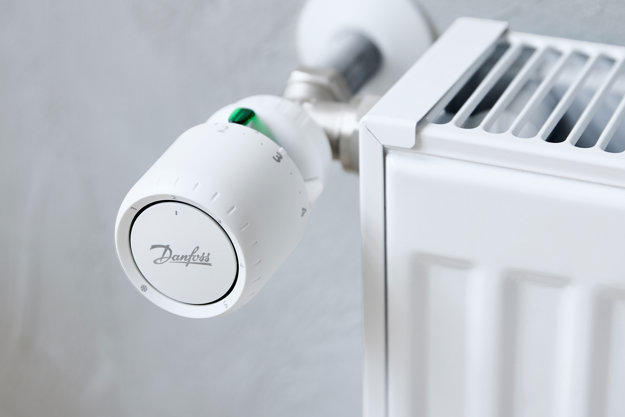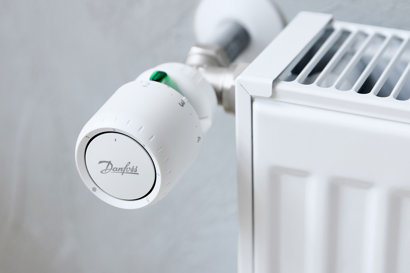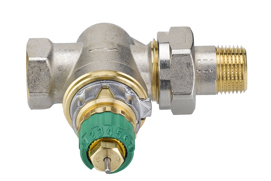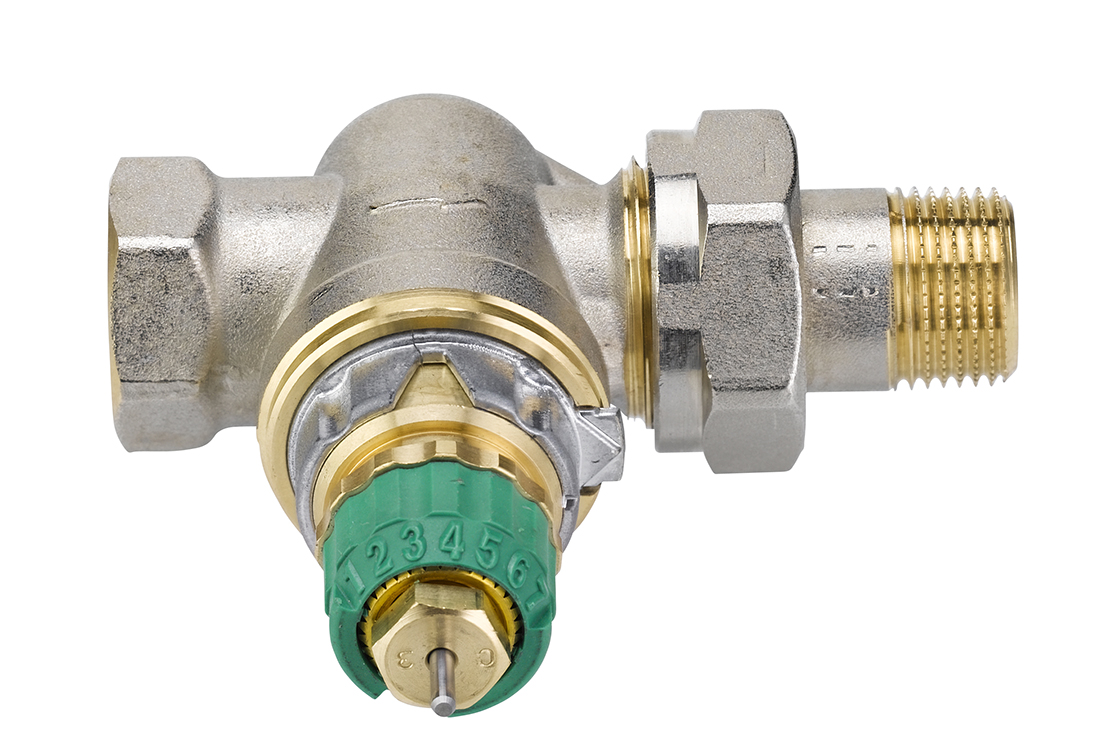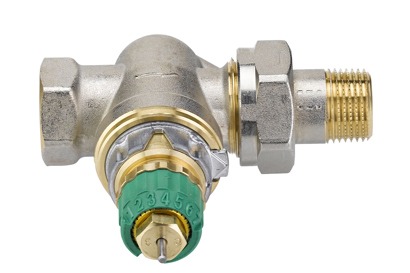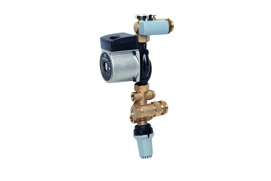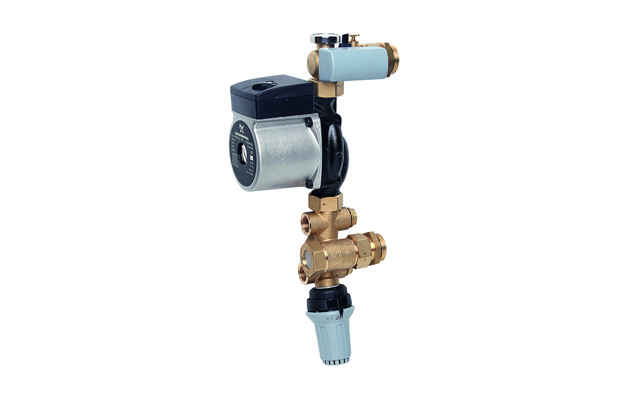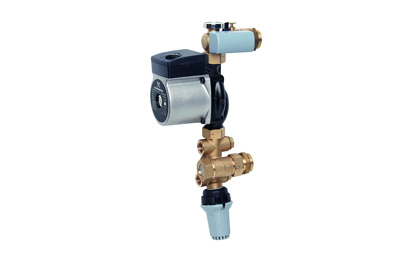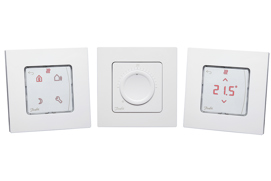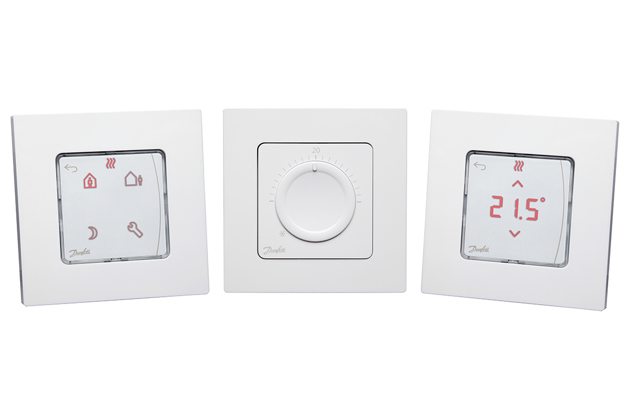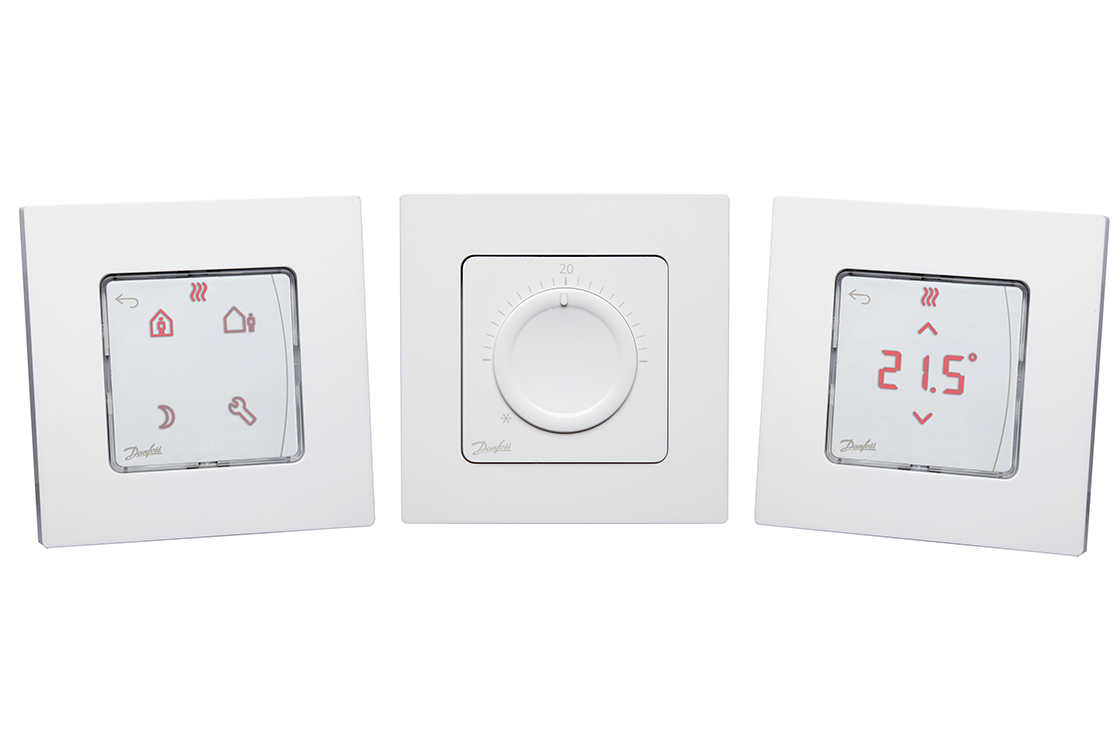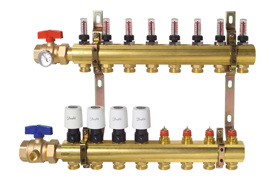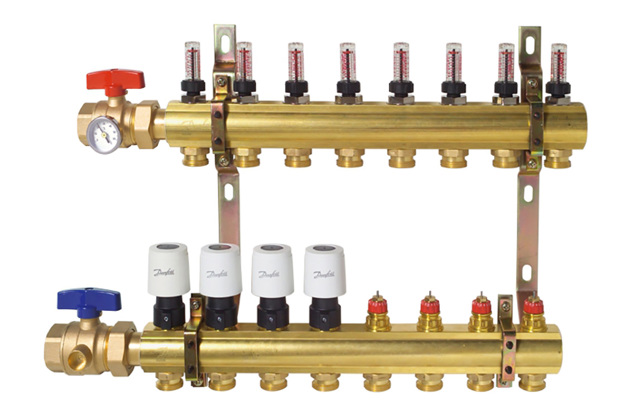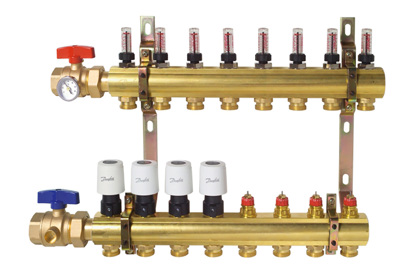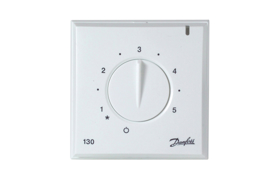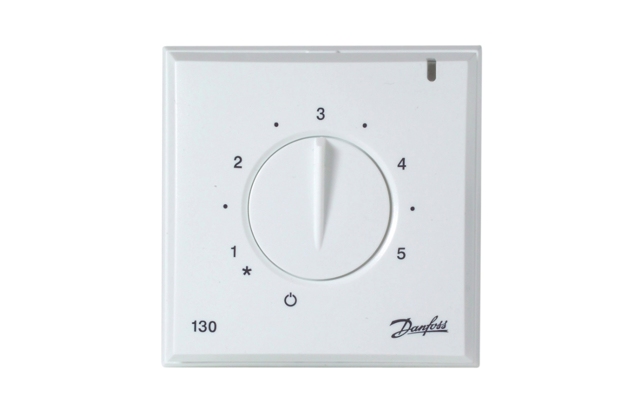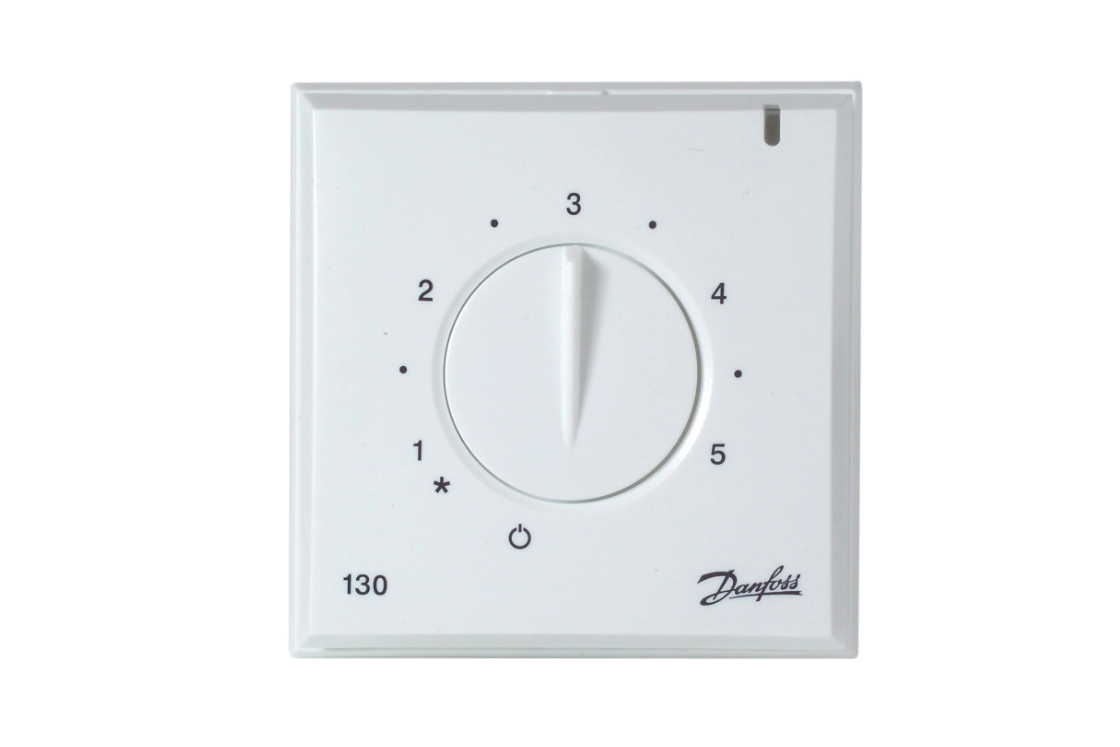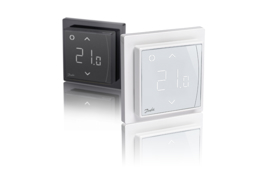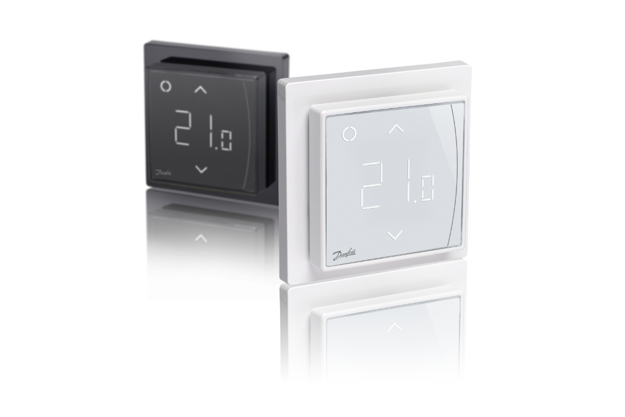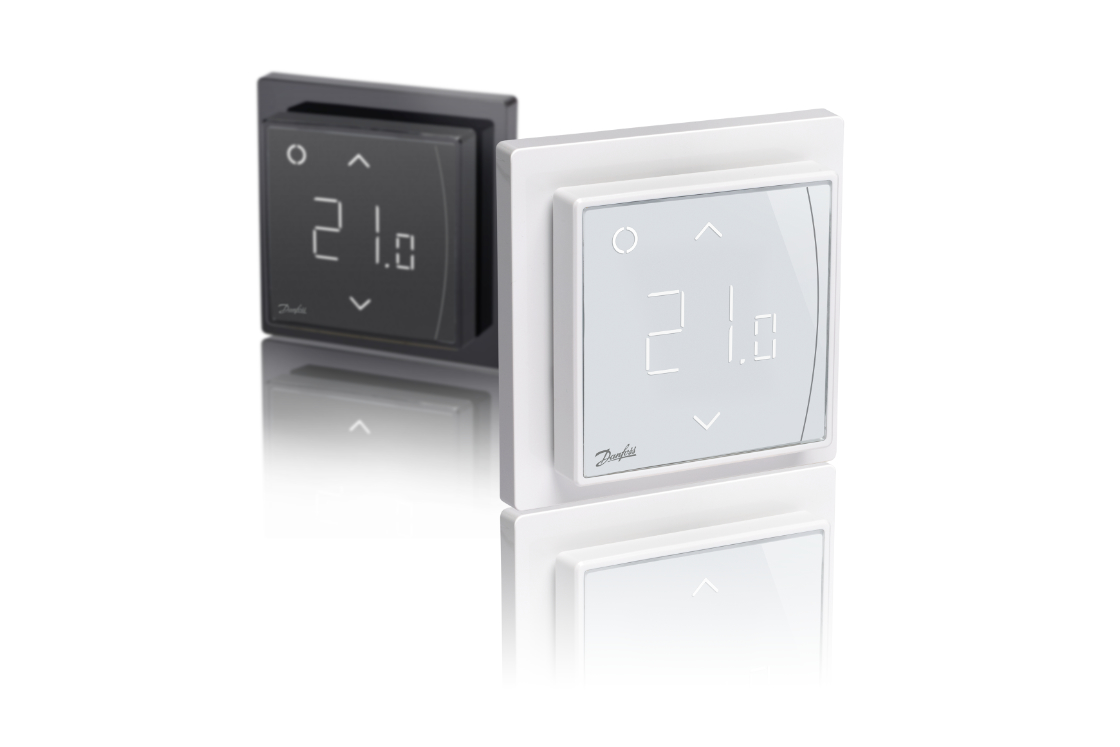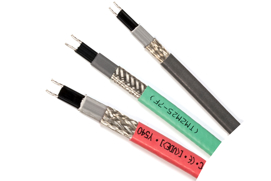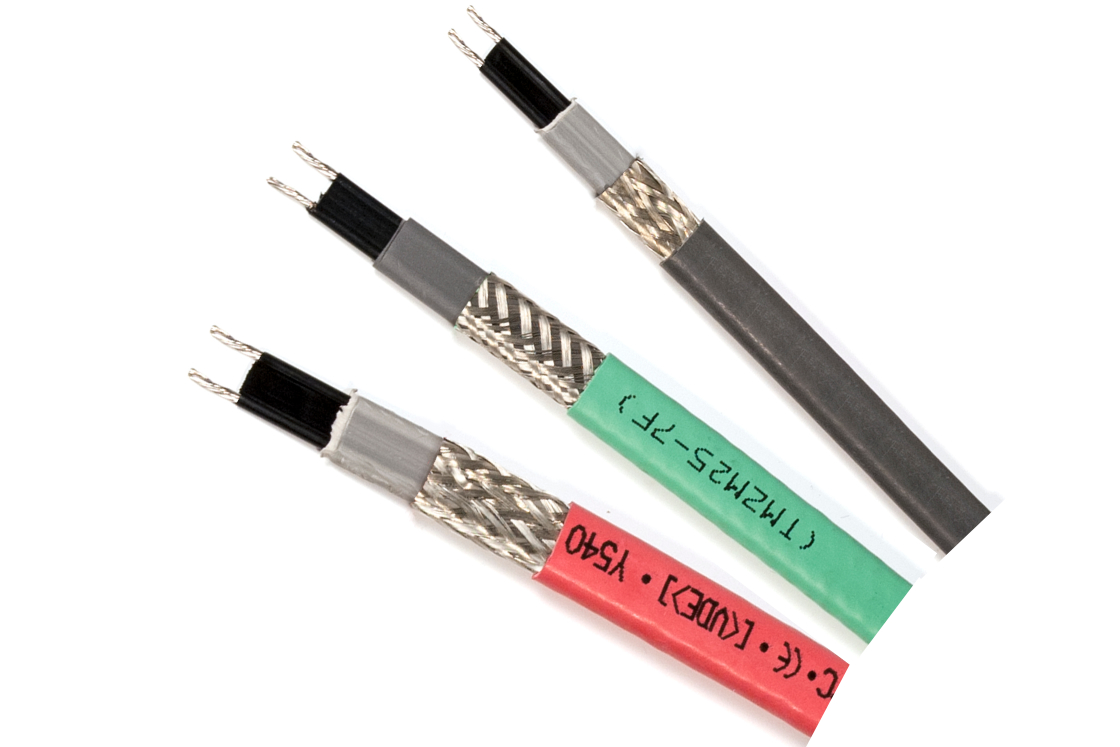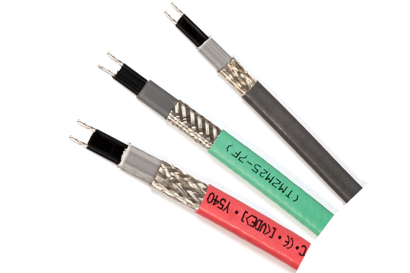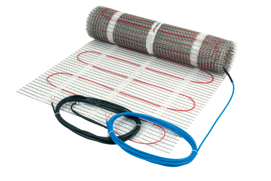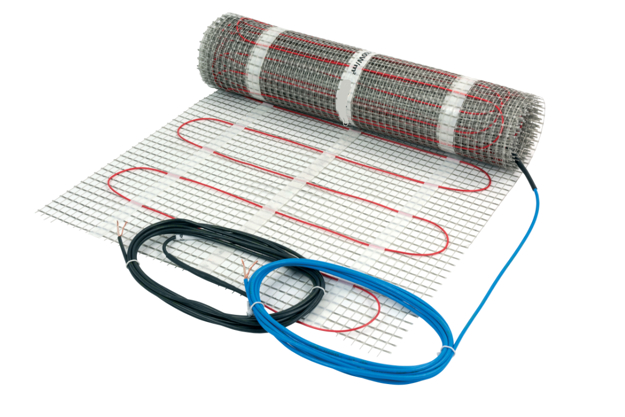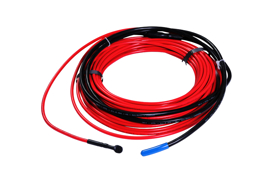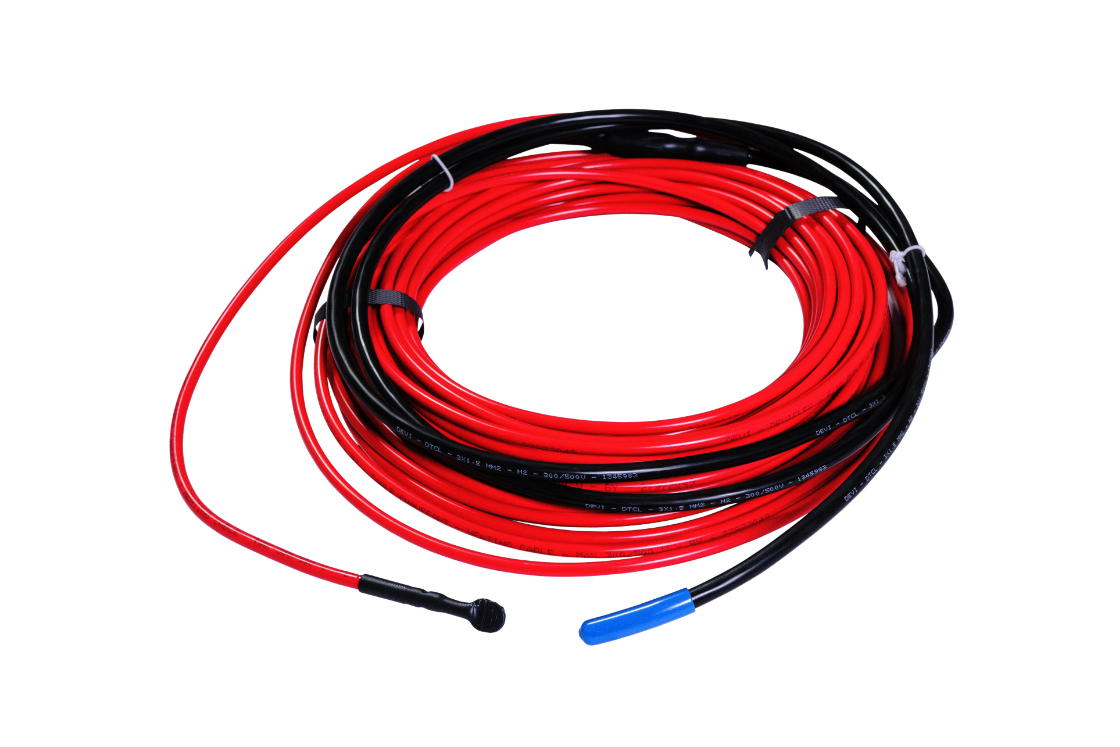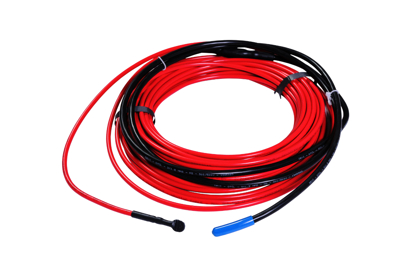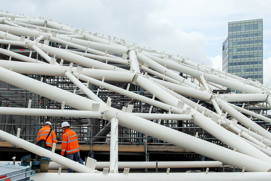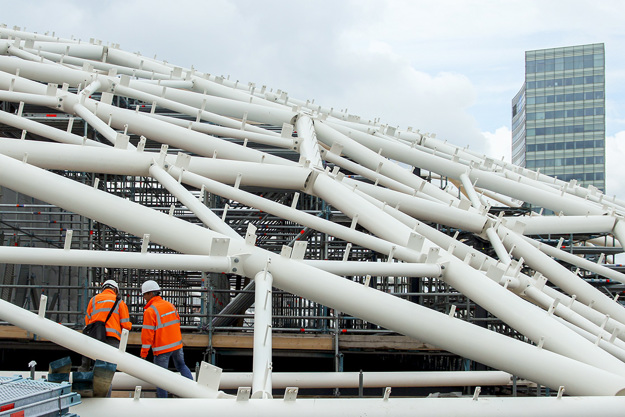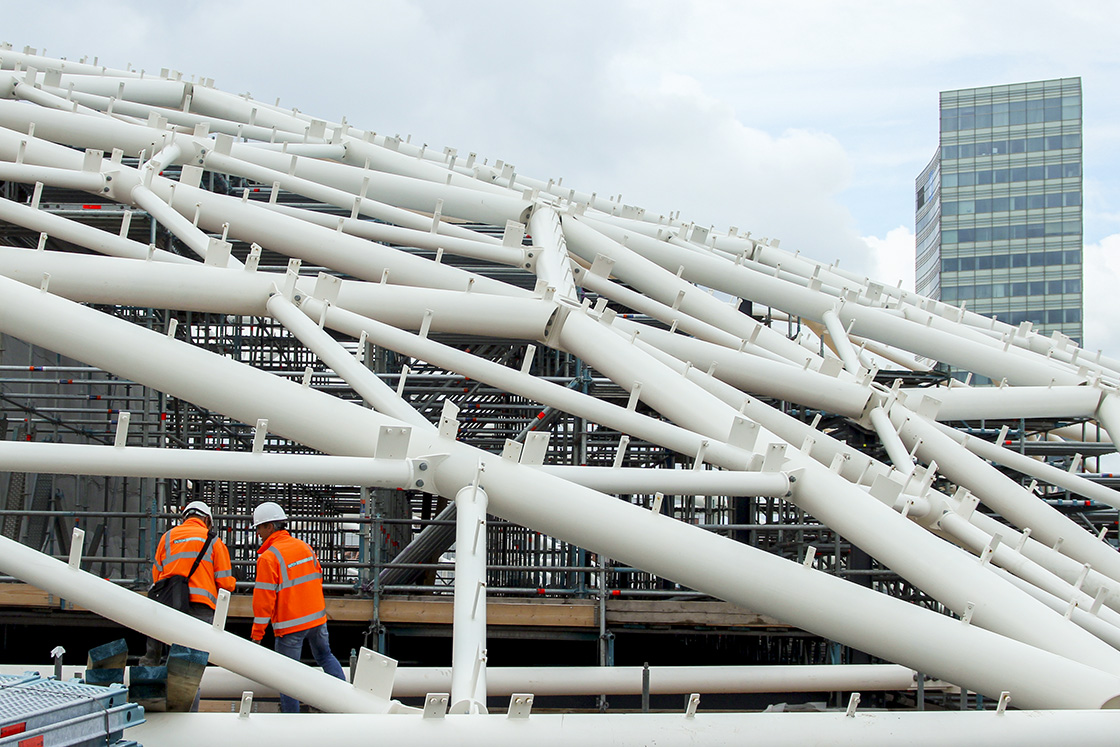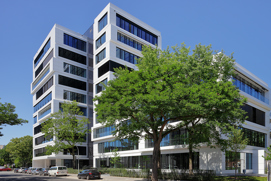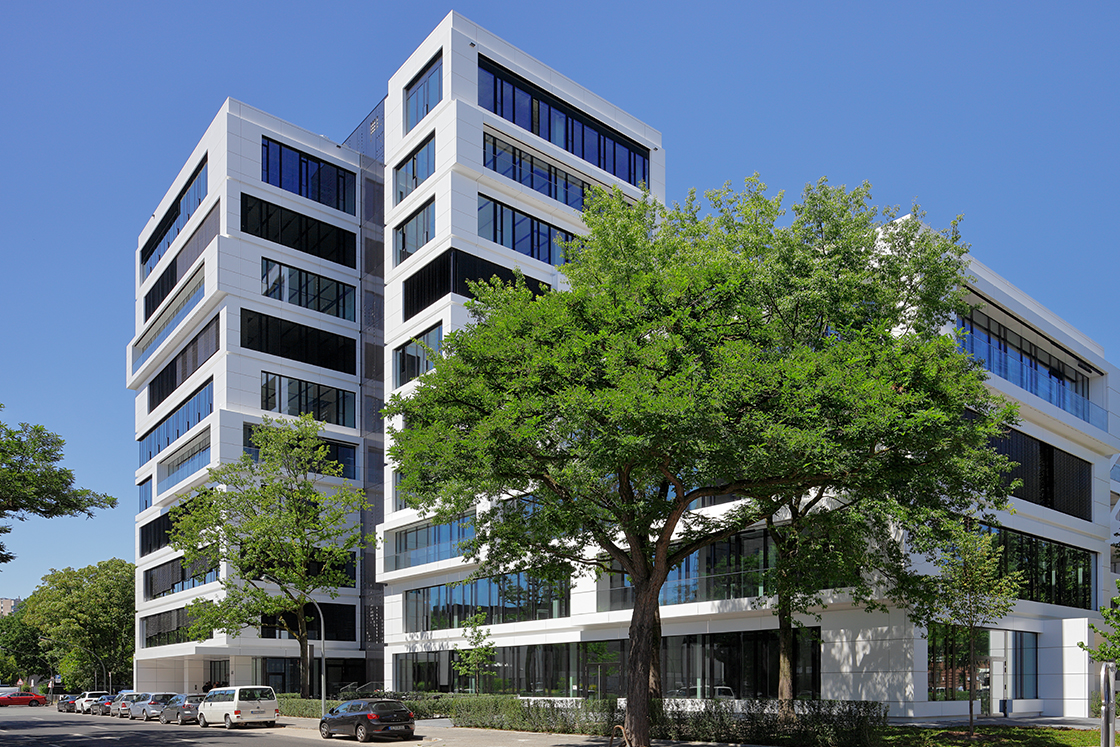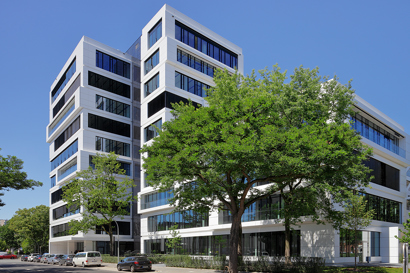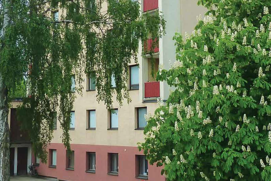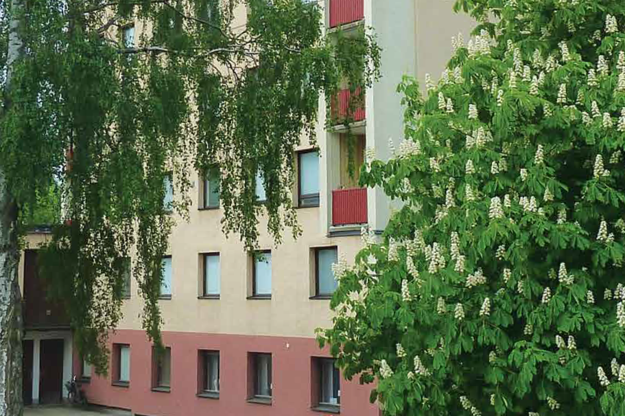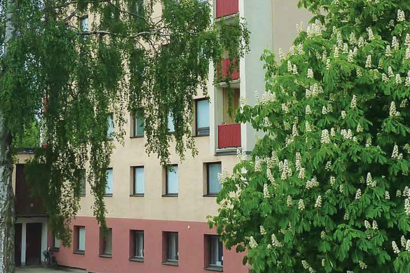To achieve the best possible indoor comfort for workers, guests, patients or other users, every building is equipped with a suitable Heating and/or comfort cooling system. There are various options to increase or decrease the room temperatures and how this is controlled:
- Terminal units
- Radiator heating
- Underfloor heating
Terminal units
Among others, cover fan coil units, cooling panels and climate ceilings. These are mostly installed in the ceiling and provide a room with heating and/or cooling via a 2-, 3- or 4-pipe system. To control the room temperature, the most accurate results, in both full- and partial load conditions, can be achieved by using Pressure-Independent balancing and Control Valves (PICV). They are simply set to the required flow under full load conditions and function as automatic flow limiters. In partial load conditions, the actuator accurately reduces the flow according to needs. No overflow situation will occur, increasing the energy efficiency of the heat or cooling source.
The actuators can be controlled via a Building Management System (BMS) or stand-alone electronic room controllers. In case the terminal units contain a fan, the room controller can also be used to change the fan speed.
Radiator heating
In most cases, designed as a 2-pipe system with one or more radiators in every room. To control the room temperature, Danfoss radiator thermostats are used. They consist of a thermostatic radiator valve, mostly with a pre-setting of the design flow, and a temperature sensor. A wide variety of sensors ensure accurate control of the room temperature. For example, if curtains prevent proper measurement of room temperature, a version with remote sensor or remote sensor and control provide a better solution.
For optimal space comfort, it is recommended to equip the radiator system with an automatic hydronic balancing solution. This eliminates pressure fluctuations, thereby ensuring that the radiator thermostats function optimally.
Underfloor heating
Offers a high level of comfort by heating rooms from the floor up. The heat is spread evenly and, because it is situated in the floor, it doesn't take up any precious room space. We offer both water-based (hydronic) underfloor heating as well as electric underfloor heating solutions. It can be used to heat all spaces in the building or to only heat dedicated spaces, such as hotel bathrooms, where the comfort requirements are highest.
With both hydronic underfloor heating and electric underfloor heating systems, the room and/or floor temperature can be controlled via room thermostats. These ensure a superb level of space comfort while avoiding rooms being heated when this is not needed.
Electric Heating by Danfoss is energy efficient and environmentally friendly. It's a flexible solution for new build and renovation that can be used for wet and dry installation. Quick responding heating systems are easy to control. They enable you great comfort and convenience whilst ensuring user friendly solutions with lasting effect and highest quality standards.
How we can help you
Accurate room temperature control
High user comfort experience
Complaint-free indoor comfort
Wide variety of systems and control solutions
Quick responding floor heating
Invisible heat source

Danfoss HVAC applications in commercial buildings
Danfoss helps you create better indoor environments with HVAC solutions based on application knowhow and a comprehensive portfolio of products for heating, ventilation and air conditioning in public and commercial buildings.
Related products
Terminal units control
-
if (isSmallPicture) {


 Actuators for PICVs
Actuators for PICVsTo take advantage of the combined balancing and control features of Danfoss AB-QM it has to be equipped with actuators controlled by room thermostats or a Building Management System. Danfoss offers a broad range of actuators varying from thermal on-off to digital step motor actuators with bus communication.
-
if (isSmallPicture) {


 AB-QM Pressure Independent Control Valves (PICV) DN15 - DN250
AB-QM Pressure Independent Control Valves (PICV) DN15 - DN250AB-QM Pressure Independent balancing and Control Valves (PICV) provide both a control functionality and dynamic balancing solution for HVAC heating and cooling systems. PICVs are designed for various types of terminal units, Air Handling Units (AHU), chillers and provide high indoor comfort and energy efficiency in public and commercial buildings.
Radiator heating
-
if (isSmallPicture) {


 Radiator valves
Radiator valvesRobustly built and designed to meet the rigors of the commercial and industrial sectors, a comprehensive range of Danfoss radiator valves is available for practically all systems and installation conditions.
-
if (isSmallPicture) {


 Radiator thermostats overview
Radiator thermostats overviewDanfoss radiator thermostats maintain constant desired room temperatures, individually room by room and help to reduce energy consumption. Mechanical thermostats or smartphone controlled thermostats - find them all here.
-
if (isSmallPicture) {


 Danfoss Dynamic valve™
Danfoss Dynamic valve™Danfoss Dynamic valve™, the innovative 2-in-1 pressure independent radiator valve that ensures both optimal temperature control as well as creating automatic hydronic balance in two-pipe heating systems – all in a single valve.
Hydronic floor heating
-
if (isSmallPicture) {


 Mixing shunts
Mixing shuntsDanfoss floor heating mixing shunts establish a water temperature low enough to safely be distributed through the floor heating system. It’s designed to fit the FH manifolds and mixes the warm supply temperature with colder floor heating return flow to the required floor heating supply temperature.
-
if (isSmallPicture) {


 Room controls
Room controlsTo ensure hydronic (water based) underfloor heating or cooling systems achieve the expected high level of comfort and low energy consumption, good room temperature controls are essential. They control the room or floor temperature to avoid overheating. For optimal comfort each room has it's own room thermostat.
-
if (isSmallPicture) {


 Manifolds and actuators
Manifolds and actuatorsDanfoss floor heating manifolds are characterized by their flexibility to establish the best suited manifold solution based on requirements. Select from all the components to construct a manifold with or without pre-setting, flow-meters, shut-off valves and air-vents that best fits your project.
Electric floor heating
-
if (isSmallPicture) {


 Analogue Thermostats
Analogue ThermostatsAnalogue thermostats are electronic control units allowing setting the heating system type and adjustment of control parameters.
-
if (isSmallPicture) {


 Digital Thermostats
Digital ThermostatsDigital controllers have the unique features allowing you to reduce energy waste. Some thermostats are fitted with Wi-Fi allowing remote control of heating systems via mobile application.
-
if (isSmallPicture) {


 Self-limiting Cables
Self-limiting CablesThe self-limiting heating cables for indoors are used for maintenance of the hot water supply and other fluids that need to maintain a certain temperature. The self-limiting capability of the cable ensures that the output increases or decreases according to the surrounding temperature. It ensures hot water in all taps, providing savings compared to a circulatory hot water system.
-
if (isSmallPicture) {


 Heating Mats
Heating MatsThe heating mats are used for installation in a thin layer of tile adhesive, self-leveling mixture, or similar. The standard minimum thickness of the floor layer is 5-8 mm while the thickness of electric heating mat is 3–4.5 mm. This minimizes the floor level increase. Electric heating mats consist of a thin cable securely fixed on self-adhesive glass-fiber mesh, usually of 50 cm width. Thin heating mats are manufactured as ready-made heating sections with a specific area (i.e. 0.5, 1, 1.5 … 12 m²) including a power supply cable (cold lead) and hermetically sealed connections.
-
if (isSmallPicture) {


 Heating Cables
Heating CablesHeating cables are used for a variety of applications, including indoor comfort floor heating and total heating both for small houses as well as large commercial buildings.
Heating cables are mostly used in connection with new building or larger renovation projects.
Case stories
-
if (isSmallPicture) {


 HVAC flexibility & Energy monitoring in EDGE Amsterdam West multi-tenant healthy & smart office
HVAC flexibility & Energy monitoring in EDGE Amsterdam West multi-tenant healthy & smart officeBuilding: Office
Application: Hydronic balancing and remote control of 4-pipe heating/cooling change-over system.
Challenge: Gaining BREEAM credits for energy monitoring and ensure fast, fail free installation.
Solution: Digital NovoCon S actuator combined with AB-QM 4.0 PICVs and ChangeOver6 Energy. The combination balances the system hydronically, allow remote access via a BMS and provides actual energy consumption data per climate panel during both heating and cooling operation. -
if (isSmallPicture) {


 Outstanding HVAC flexibility after high-end office building renovation
Outstanding HVAC flexibility after high-end office building renovationBuilding: Office
Application: Hydronic balancing and remote control of 4-pipe heating/cooling change-over system
Challenge: Ensure a flexible to use HVAC system with DGNB sustainability certification
Solution: Digital NovoCon actuator combined with AB-QM control valves and NovoCon CO6 combined with ChangeOver6 as a combination balance the system hydronically, allow remote access via a BMS and control the room temperatures during both heating and cooling operation. -
if (isSmallPicture) {


 Smart HVAC control solution for the I-tower at WTC Amsterdam, the Netherlands
Smart HVAC control solution for the I-tower at WTC Amsterdam, the NetherlandsBuilding: Office
Application: Climate panels with a four-pipe change-over system for Heating and Cooling
Challenge: Establish a modern, innovative HVAC control system optimized for flexibility in (changing) usage of office space
Solution: Integration of Danfoss field devices with the Building Management System via BACnet bus-communication -
if (isSmallPicture) {


 High-end climate solutions in Waldorf Astoria by Hilton, Amsterdam, the Netherlands
High-end climate solutions in Waldorf Astoria by Hilton, Amsterdam, the NetherlandsBuilding: Hotel
Application: Hydronic balancing and control for radiator heating and fan coil cooling
Challenge: Establish top level comfort and minimum energy consumption for heating and cooling
Solution: Fan-coil units for cooling; 8 heating risers and radiators equipped with Danfoss products. -
if (isSmallPicture) {


 New heating system with ASV automatic balancing valves in apartment building, Tallinn, Estonia
New heating system with ASV automatic balancing valves in apartment building, Tallinn, EstoniaToo warm, too cold, and no chance to regulate the heating inside the individual apartments—those were the issues facing the residents in a 9-storey apartment building in Tallinn, Estonia. By upgrading the existing one-pipe system into a two-pipe system with automatic hydronic balancing, the residents now enjoy improved comfort and 25 percent savings on the energy bill.
-
if (isSmallPicture) {


 Hydronic balancing for a housing association, Mjolby, Sweden
Hydronic balancing for a housing association, Mjolby, SwedenEnergy efficiency and indoor comfort are top of mind among building owners today. In Sweden, the housing association Bostadsbolaget AB in Mjölby took action when they were confronted with a rising energy bill due to insufficient heat distribution in a 10-storey residential building.
News
Coming soon...
Coming soon...


